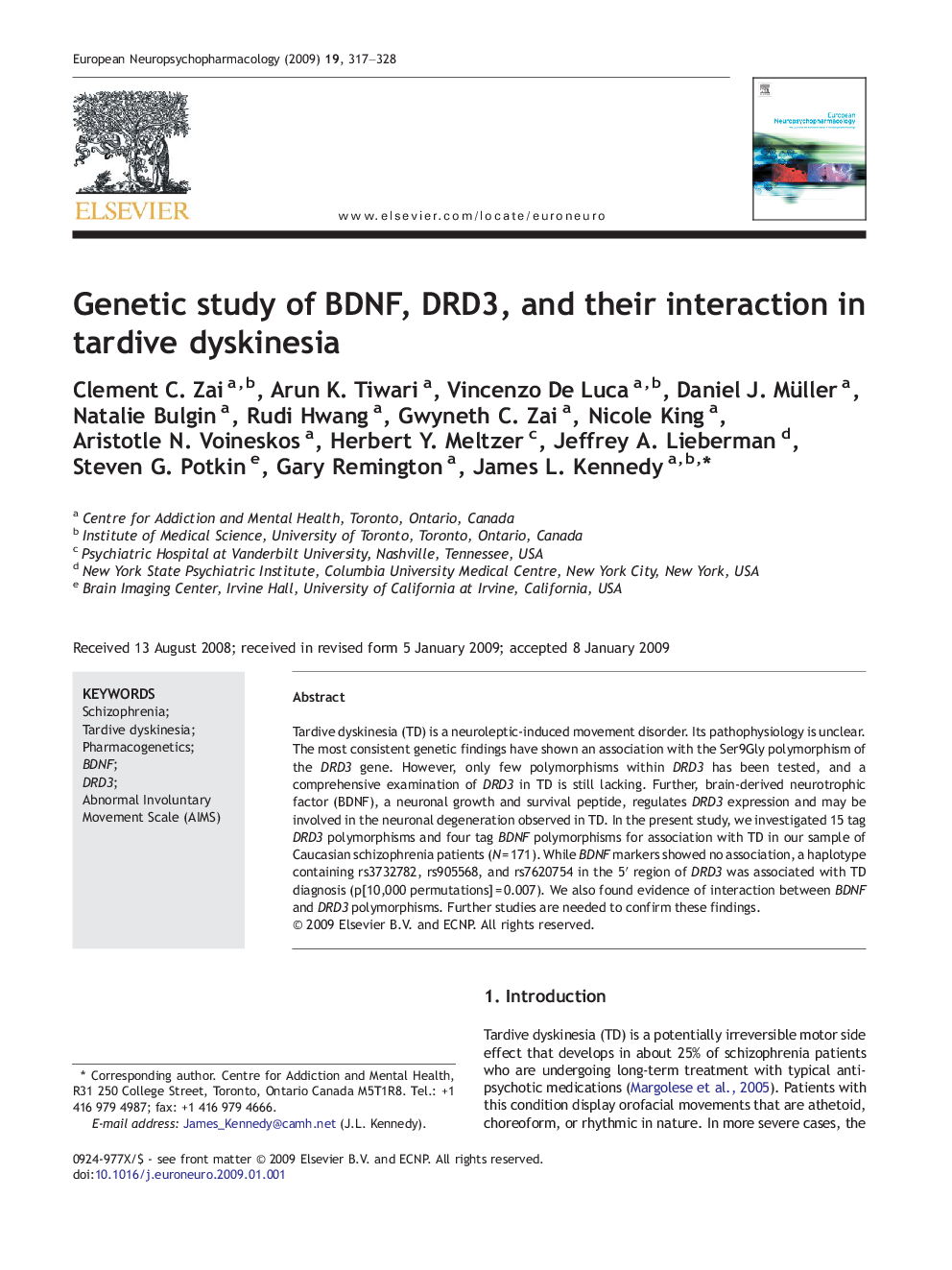| Article ID | Journal | Published Year | Pages | File Type |
|---|---|---|---|---|
| 321947 | European Neuropsychopharmacology | 2009 | 12 Pages |
Tardive dyskinesia (TD) is a neuroleptic-induced movement disorder. Its pathophysiology is unclear. The most consistent genetic findings have shown an association with the Ser9Gly polymorphism of the DRD3 gene. However, only few polymorphisms within DRD3 has been tested, and a comprehensive examination of DRD3 in TD is still lacking. Further, brain-derived neurotrophic factor (BDNF), a neuronal growth and survival peptide, regulates DRD3 expression and may be involved in the neuronal degeneration observed in TD. In the present study, we investigated 15 tag DRD3 polymorphisms and four tag BDNF polymorphisms for association with TD in our sample of Caucasian schizophrenia patients (N = 171). While BDNF markers showed no association, a haplotype containing rs3732782, rs905568, and rs7620754 in the 5′ region of DRD3 was associated with TD diagnosis (p[10,000 permutations] = 0.007). We also found evidence of interaction between BDNF and DRD3 polymorphisms. Further studies are needed to confirm these findings.
